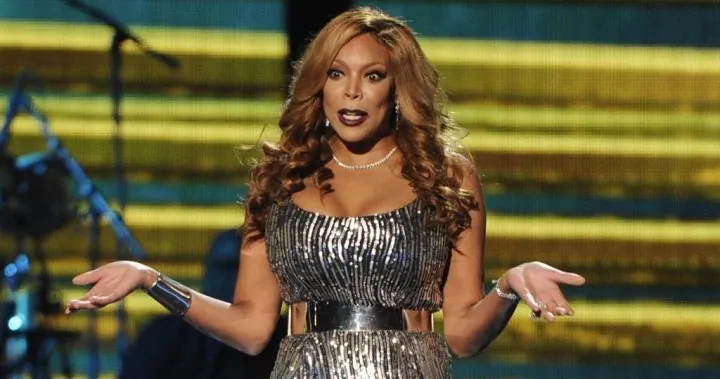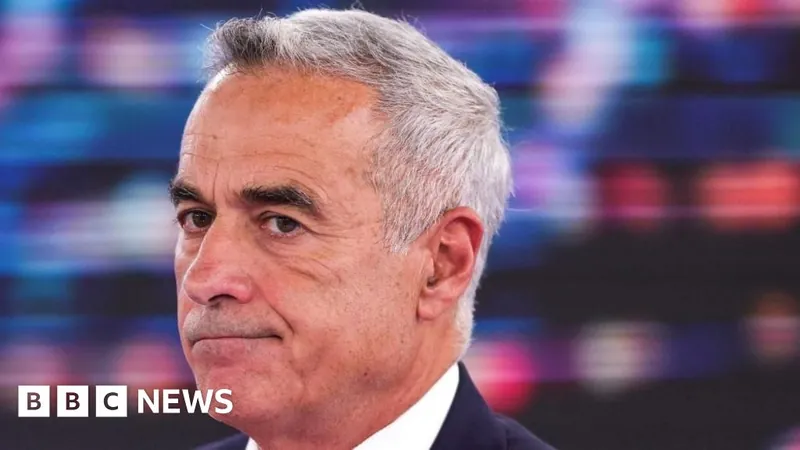
Wendy Williams Declared ‘Permanently Incapacitated’ by Guardian Amid Dementia Battle
2024-11-27
Author: Liam
Wendy Williams Declared ‘Permanently Incapacitated’
In a troubling development, Wendy Williams' guardian, Sabrina Morrissey, has claimed that the beloved former talk show host is now "permanently incapacitated" due to her ongoing struggle with primary progressive aphasia and frontotemporal dementia. This alarming update emerged from a recent court filing that has garnered significant media attention.
According to Morrissey, Williams, who is 60 years old, is now "cognitively impaired, permanently disabled, and incapacitated" as a result of her dementia diagnosis. The court documents underscore the seriousness of Williams' health and question the legality behind recent media portrayals of her life. Morrissey contends that Williams lacked the capacity to consent to be filmed in the controversial Lifetime docuseries, *Where is Wendy Williams?*, which premiered earlier this year and has since ignited a fierce legal dispute with production companies like A&E and Lifetime Entertainment.
The docuseries aimed to shed light on Williams' health challenges and her life post-*The Wendy Williams Show*, but it has faced backlash for exploiting her vulnerability, as highlighted in the court filings. The documents described the actions of media companies as "brutally calculated" and asserted they took advantage of Williams' deteriorating condition to create and monetize content at her most vulnerable moments. Frontotemporal dementia is noted in the filing as a progressive disease with no cure, meaning symptoms will continue to worsen over time.
Williams has been under a court-appointed guardianship since May 2022, after her bank raised concerns about her mental capacity. Earlier this year, her team publicly disclosed her health status to raise awareness for conditions like aphasia and frontotemporal dementia, emphasizing the stigma many face when exhibiting symptoms.
The *Where is Wendy Williams?* docuseries was filmed between August 2022 and April 2023, with producers stating they were unaware of her cognitive issues at the time. Executive producers Mark Ford and Erica Hanson acknowledged the ethical concerns raised by fans and defenders of Williams, asserting that they hoped the documentary would ultimately serve her and her family in a positive way. However, many viewers witnessed vulnerable scenes displaying Williams in a state of distress, often appearing confused and emotional throughout the episodes.
Family interactions in the series reveal a troubling narrative, with claims that Williams was isolated from her loved ones, who emphasized that she was only surrounded by people working for her. One particularly alarming scene shows her manager discovering an empty vodka bottle in her bedroom, raising questions about her well-being and care.
As this complex legal battle unfolds, Morrissey's filing seeks compensatory and punitive damages from the production companies and calls for an end to airing the docuseries, emphasizing that while Lifetime profited significantly from the project, Williams received minimal financial compensation.
This poignant situation has sparked discussions about the ethics of media reporting on personal health struggles and the duties of guardianship in protecting vulnerable individuals. It is a stark reminder of the impact such diagnoses can have not only on individuals but on their families and the broader audience that connects with them through their work.









 Brasil (PT)
Brasil (PT)
 Canada (EN)
Canada (EN)
 Chile (ES)
Chile (ES)
 España (ES)
España (ES)
 France (FR)
France (FR)
 Hong Kong (EN)
Hong Kong (EN)
 Italia (IT)
Italia (IT)
 日本 (JA)
日本 (JA)
 Magyarország (HU)
Magyarország (HU)
 Norge (NO)
Norge (NO)
 Polska (PL)
Polska (PL)
 Schweiz (DE)
Schweiz (DE)
 Singapore (EN)
Singapore (EN)
 Sverige (SV)
Sverige (SV)
 Suomi (FI)
Suomi (FI)
 Türkiye (TR)
Türkiye (TR)